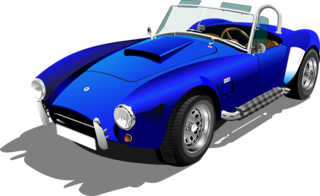Narcissism
An Easy Way to Understand Narcissistic Behavior
Narcissists are like cars with a leaky gas tank. Their fuel is self-esteem.
Posted September 4, 2021 Reviewed by Gary Drevitch
Key points
- Narcissists are unable to regulate their self-esteem without ongoing external validation.
- An easy way to understand narcissistic behavior is to imagine the person is a car with a leaky gas tank.
- Other people are seen as either competitors or sources of fuel.
- External validation in the form of attention and praise is the fuel that powers their self-esteem.

It can be quite puzzling for the average person to understand why people with narcissistic personality disorder behave so badly. I am often asked to explain why narcissists idealize and devalue other people, why they brag about their successes and forget their failures, why they feel entitled to the best of everything, and why they seem to lack the ability to truly care about anyone but themselves. People want to know:
- Are narcissists just evil manipulative people?
- Are they mentally ill?
- Do they know or care that they are hurting people who love them?
I have developed a simple way to explain narcissistic behavior. I focus on the fact that most of the negative behavior of people with narcissistic personality disorder can be attributed to two things:
- Narcissists are unable to regulate their own self-esteem without external validation.
- Narcissists lack emotional empathy.
Narcissists cannot pat themselves on the back and say, “Good job!” and actually believe that they did a good job. They need to believe that people outside of themselves believe that they are doing a good job—and not just a good job, but the very best. This means that if narcissists want to feel good about themselves, they require regular doses of external validation from people whom they respect. They need to feel like winners. This means that they are highly competitive. For them to be a winner, you need to be a loser. (Note: I am using the terms narcissist, narcissistic, and NPD as shorthand ways of referring to someone who qualifies for a diagnosis of narcissistic personality disorder.)
Their lack of emotional empathy makes it easy for narcissists not to care when they hurt other people. They are untroubled that the price of their self-esteem is a willingness to devalue or destroy other people's happiness. When I confronted a narcissistic man about how unhappy his actions made his wife and family, he calmly said: "I am not intentionally trying to hurt them. Their pain is just some unavoidable collateral damage."
Narcissists are like cars and external validation is their fuel.
Being a narcissist is a bit like being a car. Cars run on fuel. They have a gas tank to hold fuel. However, they cannot produce fuel for themselves or even refuel themselves without external help. Once they use up the fuel inside their tank, they need someone else to refuel them.
Therefore, an easy way to understand narcissism is to imagine being a car with a leaky gas tank. The fuel you run on is self-esteem. Even if you start the day with a full tank, you can feel your self-esteem start to diminish as you go through the day.
You have learned to stay focused on potential sources of new fuel—praise, chances to outdo someone else, proximity to high status people and things—and the things that deplete your self-esteem—criticism, being ignored, devalued, or discarded.
Narcissists can fall into self-hating depressions.
If you run out of fuel, you not only stop moving forward, but you start to sink into a pit of deep emotional mud. The deeper you sink, the worse you feel about yourself. At the very bottom you become immobilized by your shame and self-hatred. This makes you motivated to keep finding new sources of fuel.
All others are viewed as sources of fuel or competition.
The way you see it, every other car on the road is competing with you for fuel. You are so preoccupied with your own needs that you could not care less about their situation.
The only other cars that interest you are potential sources of more fuel for you, like the gorgeous expensive vehicles that seem to have their own inner gas stations that give them the continuous supply of self-esteem that you lack. You hope that, if you play your cards right, they will let you use their source to refuel.
Narcissists are hypersensitive and lack emotional empathy.
You are also on the lookout for fuel thieves. You are hyper-vigilant and ready to defend your self-esteem against anything that you know lessens your supply—competitors, anyone who ignores you, criticizes you, or disagrees with you. You not only do not care about their problems, but every time you devalue them you can feel a surge of new fuel enter you.
Summary
Although Information about narcissism is widely available, it can be hard to find accurate, easy to understand explanations of narcissistic behavior. Most of what is written either demonizes people with narcissistic personality disorder or explains their behavior in a highly complex theoretical way. I have found that the simplest way to explain why narcissists behave the way that they do is to conceptualize narcissistic personality disorder as a chronic problem with self-esteem regulation coupled with a lack of emotional empathy. From this point of view, narcissistic personality disorder can be explained as a self-centered, desperate, never-ending search for emotional fuel in the form of self-esteem.
Based on a Quora post




